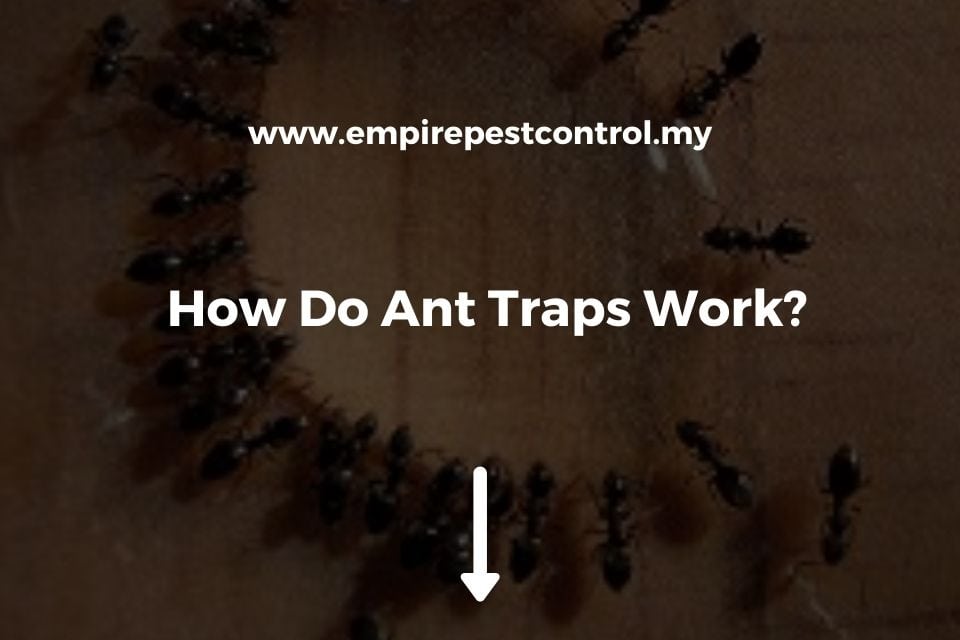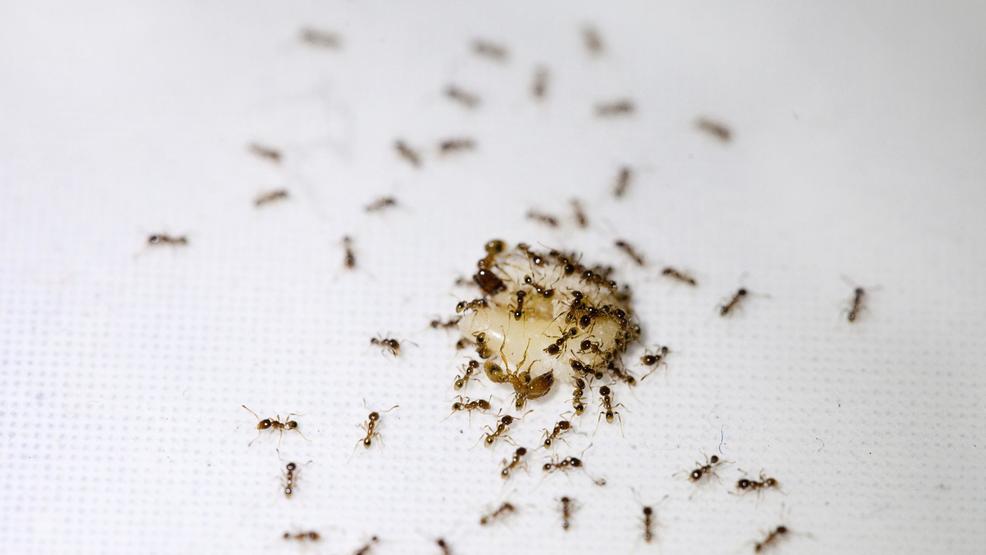Ants can be extremely irritating invaders that encroach upon our living spaces and consume our sustenance. Fortunately, there’s a straightforward solution to deter them – employing an ant trap! Available in a variety of forms and dimensions, ant traps essentially perform the same function: they attract ants with enticing bait (delicious!) and eliminate them as they transport it back to their nest. It seems pretty straightforward, doesn’t it? However, you may be curious about the specifics of how these devices operate.
If you want to know how professional ant traps work, then this blog post is for you! We’ll be explaining all the ins and outs of what makes these ant traps so powerful.
P.S. Need to get rid of ant infestation fast? Our team of ant control specialists are ready to assist you. Contact us now to get a quote for ant control.
Contents
What Are Ant Traps & How Do They Work?
Ant traps consist of ant baits that are attractive to ants, such as sugars, food crumbs, and syrup. They have a few dosages of toxic substances for ants which they would bring to their colony. Once they do, they will feed the queen ant and other ants in the colony with the toxic substance, slowly killing them off one by one.
There are types of ant traps, such as granular and liquid ant bait traps, which contains these common ant bait products:
- Abamectin products – more commonly used as an insecticide
- Borate-based products – products containing borax or boric acid
- Fipronil products – a white powdery substance with the odor of mold
- Hydramethylnon products – insecticide for ants and cockroaches
Are Ant Traps Effective?
Ant traps are commonly known to be effective as many people use this method of dealing with ant infestations. Other than that, ant traps are also extremely easy to use. All you need is to place the ant bait in a location that’s frequented by ants and then wait for them to come!
Ant traps work well because they’re equipped with powerful ingredients, which can be fatal when consumed even in small amounts, but this doesn’t mean it’s safe around kids and pets, though, as ingestion of these strong bug poisons could cause severe harm. Although ant traps do not work with all types of ants, it is effective in most common ants that invade your home or business.
The Pros and Cons of Using Ant Traps
The benefits of using ant traps are that it is very easy to use, and you can find the materials to create one anywhere in your local stores. Ant traps are also cheap to buy, and they can give you permanent solutions in dealing with ant problems.
The disadvantages of ant traps are that they could take a while to take effect and it could cause harm to your pets and children. It also does not affect all types of ants, so there could be a number of ant types that could survive the effects of ant traps.
Can I Make My Own Ant Trap?
If you’re looking for a more sustainable way of dealing with an ant infestation, they could try making your own homemade ant trap.
There are many DIYs on the internet that will help walk you through how exactly do these things work and what ingredients can be used as an alternative or supplement to some commercial pest control products.
You can definitely make your own ant trap, and it would be cheaper! Ant trap materials are also easy to find, so you won’t have to stress yourself looking for them.
The New Understanding
Ants are a problem in many homes and businesses, so it’s important to know how ant traps work. In this blog post, we’ve provided some information on the different types of ant traps as well as their pros and cons.
If you want more information about any specific type of trap or have questions about them, please contact us for further assistance.



